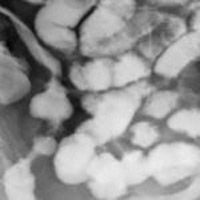Understanding Stomach Response Can Trigger Targeted Therapy for GI
Further understanding the stomach's immune response to Helicobater pylori (H. pylori) infection could potentially serve as a springboard for developing new therapies targeting stomach damage, according to new research published in the journal Cellular and Molecular Gastroenterology and Hepatology.

Further understanding the stomach’s immune response to Helicobater pylori (H. pylori) infection could potentially serve as a springboard for developing new therapies targeting stomach damage, according to new research published in the journal Cellular and Molecular Gastroenterology and Hepatology.
When H. pylori infection is present, the alarmin Interleukin (IL)-33 surfaces, triggering necessary changes to best handle the injuries resulted from the infection. Moreover, the molecule was found to activate an inflammatory immune response sparking the process of cell loss, which inevitably leads to the onset of metaplasia.
Researchers conducted an investigation to evaluate IL-33 expression in mice and human biopsy specimens infected with H. pylori and in mice after dosing with aspirin. IL-33 expression was localized in the gastric mucosa using immunofluorescence, and the mice models were administered 1 or 7 daily doses of recombinant IL-33 (1 μg/dose).
The scientists used flow cytometry, quantitative reverse-transcription polymerase chain reaction, and immunoblotting to quantify the models’ stomach and the spleen responses.
The experts found IL-33 to be elevated during acute response to infection, declining chronic infection. Experts surmised that this could lead to alterations in patients with chronic infection.
Jon N. Buzzelli, PhD, lead study author, Murdoch Children’s Research Institute, Department of Pediatrics, Royal Children’s Hospital commented, “These (IL-33) immune cell drivers of proliferation and expansion of metaplasia may be a critical target for intervention and further research.”
Also, James R. Goldenring, MD, PhD, AGAF, Associate Editor of Cellular and Molecular Gastroenterology and Hepatology remarked, “Further investigations will be necessary to determine the changing influences of IL-33 at different stages of cancer development.”
The study results concluded, “IL-33 is highly expressed in the gastric mucosa and promotes the activation of T helper 2—cytokine–expressing cells. The loss of IL-33 expression after prolonged H. pylori infection may be permissive for the T helper 1–biased immune response observed during H. pylori infection and subsequent precancerous progression.”